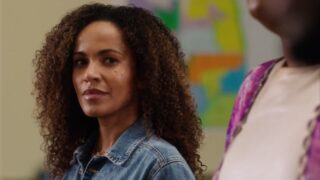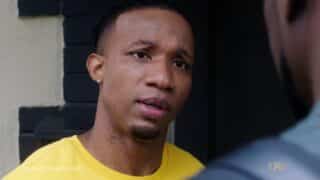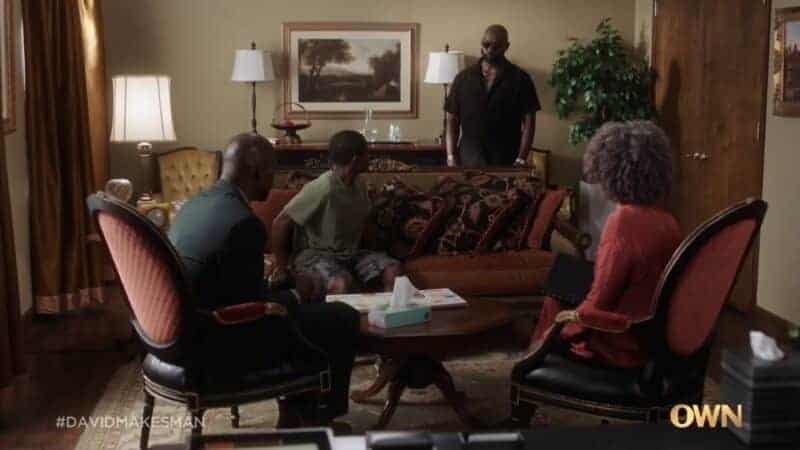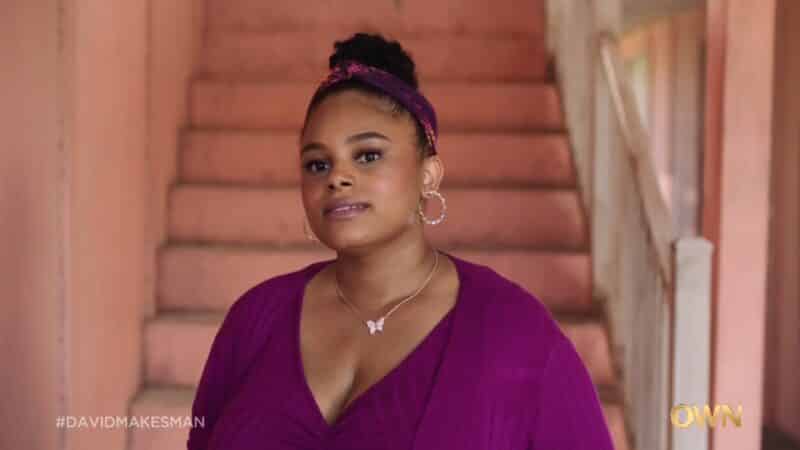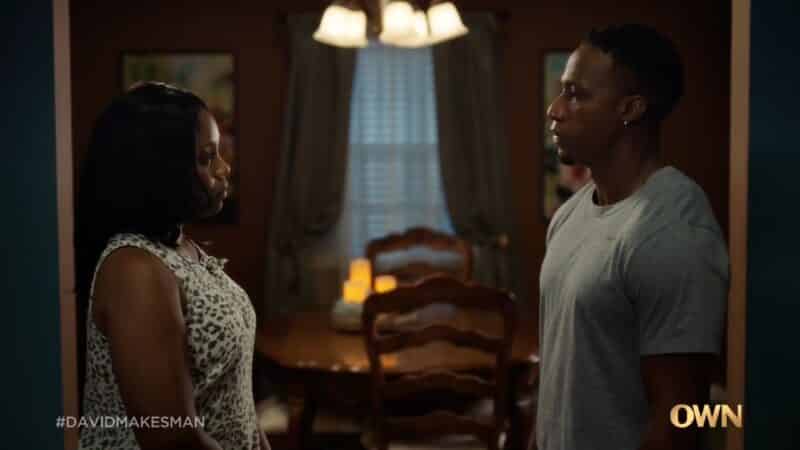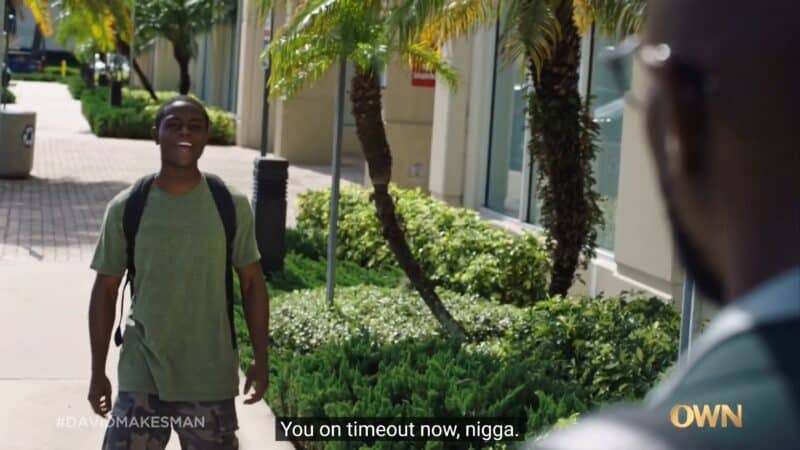David Makes Man: Season 2 – Review/ Summary (with Spoilers)
Thanks to a time jump that isn’t adequately reconciled, combined with diminishing the role of most characters, David Makes Man strips away a lot of what made you a fan in the first season.
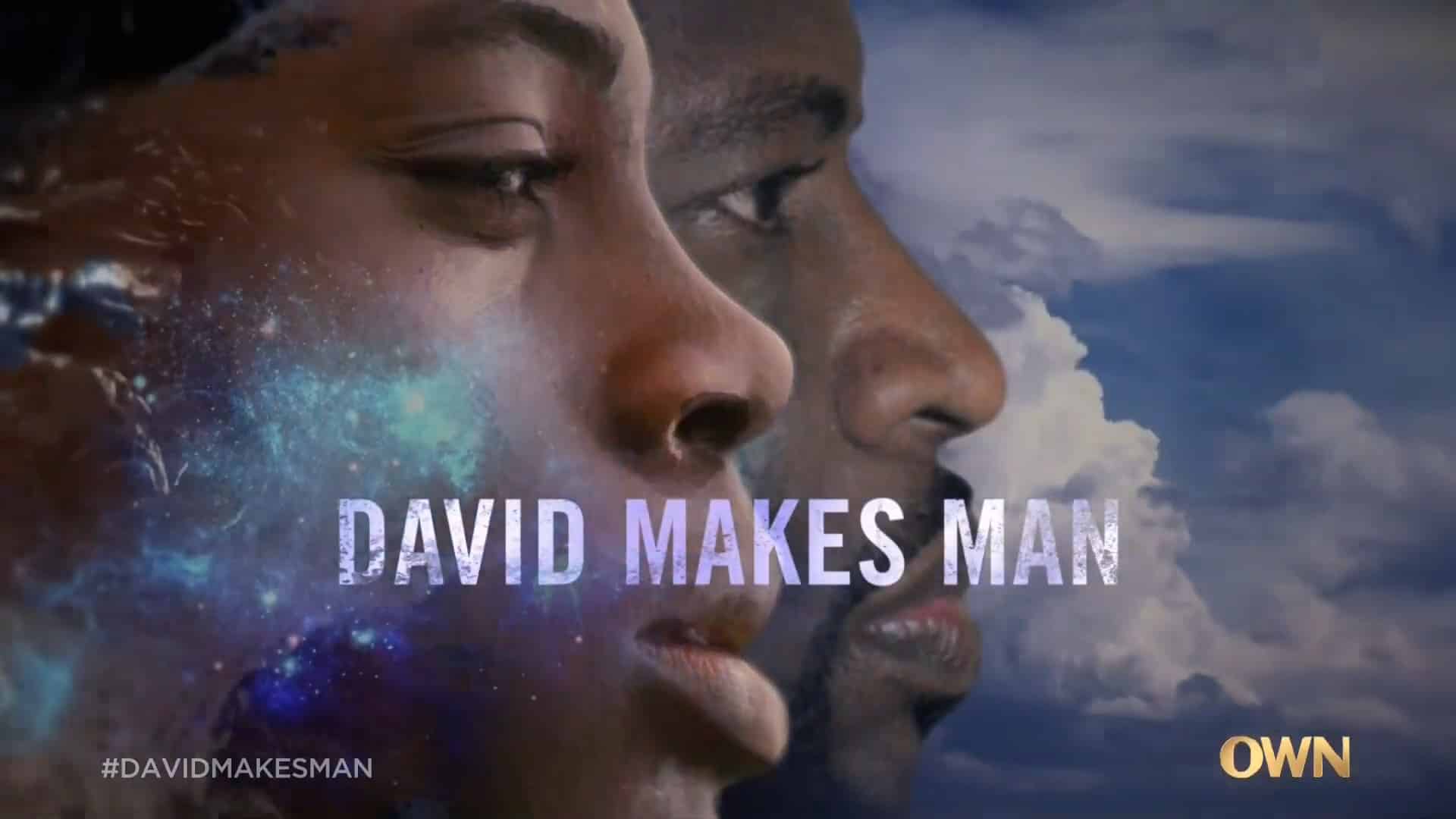
Spoiler Alert: This summary and review contains spoilers.
Additionally, some images and text may include affiliate links, meaning we may earn a commission or receive products if you make a purchase.
Thanks to a time jump that isn’t adequately reconciled, combined with diminishing the role of most characters, David Makes Man strips away a lot of what made you a fan in the first season.
| Season Premiere | 6/22/2021 |
| Season Finale | 8/24/2021 |
| Episodes | 10 |
| Network | OWN |
| Created By | Tarell Alvin McCraney |
| Genre(s) | Drama, Family |
| Noted Cast | |
| David (Older) | Kwame Patterson |
| David (Teen) | Akili McDowell |
| Nicole | Brittany S. Hall |
| Skye | Isaiah Johnson |
| JG | Arlen Escarpeta |
| Marissa | Erica Luttrell |
| Seren | Kyle Beltran |
| Dr. Halloway | April Grace |
| Trish | Brandi Huzzie |
| Shella | Zsane Jhe |
| Commissioner Corey Roberts | Rodney Gardiner |
| Gloria | Lauryn Dennis |
| Robin | Bobbi Baker |
| Mx. Elijah | Travis Coles |
| Tare (Older) | Aba Arthur |
| Tare (Teen) | Teshi Thomas |
| Joe | Tony Plana |
This content contains pertinent spoilers.
Season Summary
After a nearly 15+ year time jump, we focus on David, who has graduated from Hurston and other top schools and is now trying to build a career as a go-to person in the construction industry. However, while his career is booming, his personal life is an immense struggle. His connection to his family is strained, and his personal life far from what he’d want. Granted, he is seeing a nice young lady, Nicole, but David’s inability to be vulnerable and open plagues their relationship.
But, in general, David’s struggle is determining who he will be as a man, as he tries to undo the belief he should adhere himself to the blueprint Skye laid out for him.
Review
Highlights
Episode Specific
- Episode 8’s Hour-Long Therapy Session
The Older Versions Of Season 1 Characters Embody Their Younger Counterparts
While it is difficult to deal to not see the teen or tween actors from season 1, you have to give the casting director credit for finding the perfect adult counterparts. In terms of mannerisms and looks, Kwame Patterson makes an excellent David from the stutter, the bashful smile, and even how David navigates his rage. This can also be seen with the casting of an older JG, Marissa, and even Seren.
Now, this isn’t to say the time jump and the storylines given to these older versions don’t come with issues. However, more on that below.
An Entire Episode Dedicated To David Being In Therapy
As therapy becomes a norm within the lives of people of color, there is a need to show it as going to see a doctor and not paying someone to vent to. If not doing away with the idea that this person should have all the answers because of their degrees and library. We get to see that in episode 8 as David sits down with Dr. Halloway, and she gives you a good idea of what therapy is and not how many think of it.
The recap of the episode goes into more detail, but the gist is, Dr. Halloway performs soul surgery on not just David but the season. For in us watching David get dismantled, we don’t just see a glimmer of what made season 1 so brilliant, but an entire episode that helps to renew your faith before the season reaches its end.
Trish, Shella & Commissioner Roberts
While a lot of the focus is on the adult versions of season 1 characters, new characters are also introduced. Some, like Commissioner Roberts, don’t get developed much as individuals, but their personalities are notable, and they are always a welcome presence on your screen. Others, like Trish, JG’s wife, say and do stuff that makes you want to know more, for there clearly is something there. However, the second season sadly shifts to be more centered on David, so while there is a multitude of potential storylines with her and many others, they aren’t explored.
But then there is Shella, who is allowed to blossom, despite the shadow David puts many characters in. This isn’t to downplay her role as “The other woman” in JG’s life, but you can see with Shella an investment that may have her situation with JG be what brings her and you in, but then she evolves.
As the manager and borderline spokesperson for The Ville, starting in episode 4, Shella becomes the breakout of the season and outdoes many of the characters established in season 1. For if it isn’t the deadliness of that dimple, it is her going toe to toe with David or JG, sometimes in praise, but usually by being the only one who can call them out and hold firm. Making it so she is a force not to be played with but rather seek peace with.
Low Points
It’s All About David and JG Now
Season 1 felt more like an ensemble, with David being the center, but those who influenced him got a chance to shine as individuals. That doesn’t really play out in season 2. This time around, everything is directly about David or JG or something that will affect them. This means Gloria’s new venture having a foster home with a multitude of LGBT+ kids? Barely gone into, alongside her “partner” Robin, who we assume is just a business partner. The same goes for Mx. Elijah, who now has some kind of memory issue.
But perhaps the real issue is that we don’t even get to spend time with the adult versions of everyone from season 1, beyond David’s interactions with them. Marissa is an old crush turned adversary, Seren is someone treated as a ghostly figure most of the season, and when he pops in, he too becomes David’s enemy. Also, while we see Tare, it’s for a cute dance number between teen David and Tare, with the adult versions quickly helping you understand why they broke up.
Now, this isn’t to say JG and David’s storylines were terrible. It is just David dealing with trying to help this big-time real estate developer become mayor didn’t elicit much in the way of investment. Hence, it isn’t until episode 8, when he faces himself and truly deals with his issues, that the season gets to where it feels in line with season 1.
Which isn’t to say the writers shouldn’t have experimented, but I think in their experimentation, they stripped a lot of what made people get attached to the show as a whole, and trying to put everything on two characters didn’t work. Especially since, speaking on JG’s role, like David, his job doesn’t garner much interest. But then, to make things worse, it’s like the show refused to develop his wife or daughter to be on par with him or develop them enough to exist outside of his universe. Hence why Shella is one of the few characters beyond the two Young boys to be highlighted, since she is the only one treated like an individual and not a catalyst or accessory.
How Quickly The Central Conflict Of The Season Is Wrapped Up
David’s storyline deals with trying to help a man named Joe Padilla tear down The Ville and build up a mall, then switch to condominiums, and use the praise of being merciful to become Mayor of Miami. This leads to David facing off against Marissa, a big-time environmentalist, Seren, a lobbyist, and pouring nearly everything into getting a multi-year job done in 6 months.
All of that gets undone in the last episode in such a way that it leaves you split between feeling the writers lost interest in that venture or that there wasn’t enough time to let the story play out properly. For while it is understood that the events of episode 8 were a turning point in David’s psyche, considering what Commissioner Roberts did, what Joe had going, and Marissa? The fact all of that got undone in one episode? All with a nice and tidy bow on it? It makes you want to do research to know the thinking behind these decisions to understand what the plan was.
On The Fence
The Time Jump
As shown thus far, the time jump is polarizing. On the one hand, by jumping ahead 15 or so years, we got to see the effects of David’s childhood as a fully grown adult. We got to see how his trauma, unchecked, developed. Yet, on the other hand, with there not being any real pursuit of reconciling that notable time gap, it leaves you to do the work. It leaves you to make assumptions. Which does bestow a certain amount of respect to the audience by not explaining everything. Yet, I feel like the writers completely disregarded why we fell in love with all the characters and the actors who played them.
Hence, we repeat how much episode 8 meant to this season, for that is when you finally feel adjusted. It is at episode 8 when you learn to accept this season has no interest in most of the characters we met in season 1, and their appearance is just to establish you aren’t watching a whole new show, and David Makes Man isn’t an anthology.
And don’t get me wrong, I understand the show’s title has David’s name in it, but it wasn’t just his story that people got invested in. So like so many stories that are split between the teen years and adult years, there is always this feeling that the adults and their younger counterparts don’t compliment each other as much as they are competing. This makes seeing Akili McDowell’s David throughout the season and others from season 1 not feel like a passing of the baton. Rather, it acts as a reminder of what we had but will not get more of, beyond McDowell’s David, who ultimately is integrated into the season.
Overall
Rating: Mixed (Stick Around)
David Makes Man has a very polarizing second season. It’s the type that can challenge your loyalty as it asks you to focus on your connection to the characters, not the actors who played them, while lessening the importance of so many in the process. Add in David’s goal to impress a man like Mr. Padilla pales in comparison to him trying to impress Dr. Woods-Trapp, and what it would mean to get into Hurston? Season 2 lacks a carrot to dangle to get you watching to the end, and for those who do make it, I wouldn’t say David having a breakthrough in therapy compensates for every underdeveloped or outright ignored character.
Hence the mixed label. David Makes Man season 2 isn’t bad, but more so is disappointing. By aging up the characters, limiting its focus to the two Young boys, and doing the minimum to catch us up, this has become the prime example of a sophomore slump.

